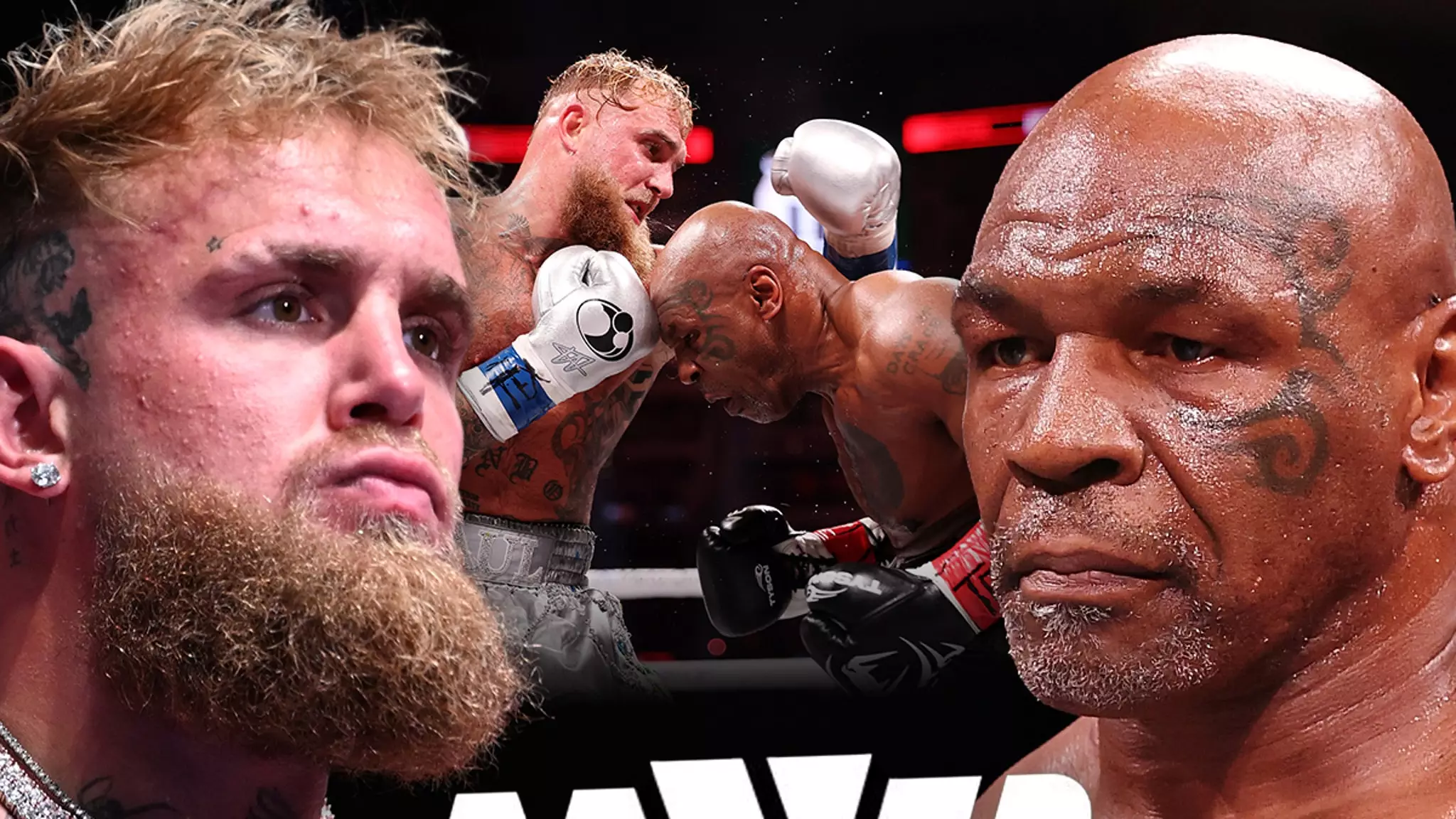In the realm of professional boxing, few events have stirred as much contention and debate as Jake Paul’s recent victory over the legendary Mike Tyson. As a YouTuber turned professional boxer, Jake Paul has often found himself at the center of skepticism regarding his legitimacy in the sport. Following his unanimous decision win over Tyson, critics were quick to voice their disbelief, suggesting the match was anything but authentic. The response from Paul’s promotional organization, Most Valuable Promotions (MVP), has ignited discussions about the fairness and integrity of sports, especially as it pertains to celebrity boxing.
Critics of Jake Paul’s victory have not held back, suggesting that the only way a 27-year-old could triumph over a 58-year-old boxing icon is via nefarious means. Detractors have pointed to specific moments in the fight as evidence that Tyson may have been holding back his punches—a theory suggesting the match was orchestrated to guarantee a more significant payday for both fighters. Such conjectures imply an underlying skepticism of Paul’s boxing prowess and an unwillingness to accept the legitimacy of his triumph.
Further compounding the criticism is the concern for Tyson’s historic reputation. Many fans of the sport view any potential collusion in the ring as a tarnishing factor not only for the fighters but also for the integrity of boxing itself. The idea that Tyson could voluntarily pull punches raises vital questions about sportsmanship and ethics within a competitive arena that thrives on authenticity and effort.
In stark contrast to the swirling rumors, Most Valuable Promotions quickly issued a public statement defending the legitimacy of the match. They dismissed the notion of a rigged fight, emphasizing that both fighters had the freedom to compete without any contractual or regulatory constraints that could have impeded their performance. MVP’s position rests firmly upon the legalities of sports sanctions, asserting that any manipulation of the match would constitute a federal offense, given the oversight of the Texas Department of Licensing and Regulations.
The promotion highlighted the absurdity of accusations against both fighters, branding the criticism as “naive” and “inane.” They argue that such claims undermine the hard work and dedication showcased by both Paul and Tyson throughout their careers. MVP contends that believing the fight was rigged not only insults the abilities of the fighters but also challenges the authenticity of the sport itself.
Nakisa Bidarian, co-founder of MVP, articulated that Jake Paul has endured skepticism from the very beginning of his boxing journey. Whenever Paul achieves success, a segment of the audience seems unwilling to give him credit, resorting instead to conspiracy theories. His ability to attract significant viewership and consistently break attendance records indicates his rising influence in boxing, regardless of the controversies surrounding his persona.
Bidarian emphasizes an important reality in the world of sports: each time a new figure enters the arena, particularly from an unconventional background, there will invariably be questions about their legitimacy. This skepticism can be understood in the context of an age-old tension between traditional boxing aficionados and the new generation of celebrity athletes breaking into the sport.
Jake Paul’s assertion of dominance over Mike Tyson ultimately serves as more than just a boxing match—it’s a defining moment in a larger narrative concerning celebrity athletes in traditional sports. While the dispute around the legitimacy of the fight continues to rage, it also opens up important discussions about the evolving nature of entertainment and athleticism in our modern society.
As this discourse unfolds, fans and critics alike will need to grapple with the implications of celebrity influence in sports. Whether perceived as a threat or fresh air, the spectatorship brought by influencers like Paul speaks volumes to the changing dynamics within traditional arenas. With new stories continuously emerging from this intersection of entertainment and athletics, the sporting world may never be the same again.

